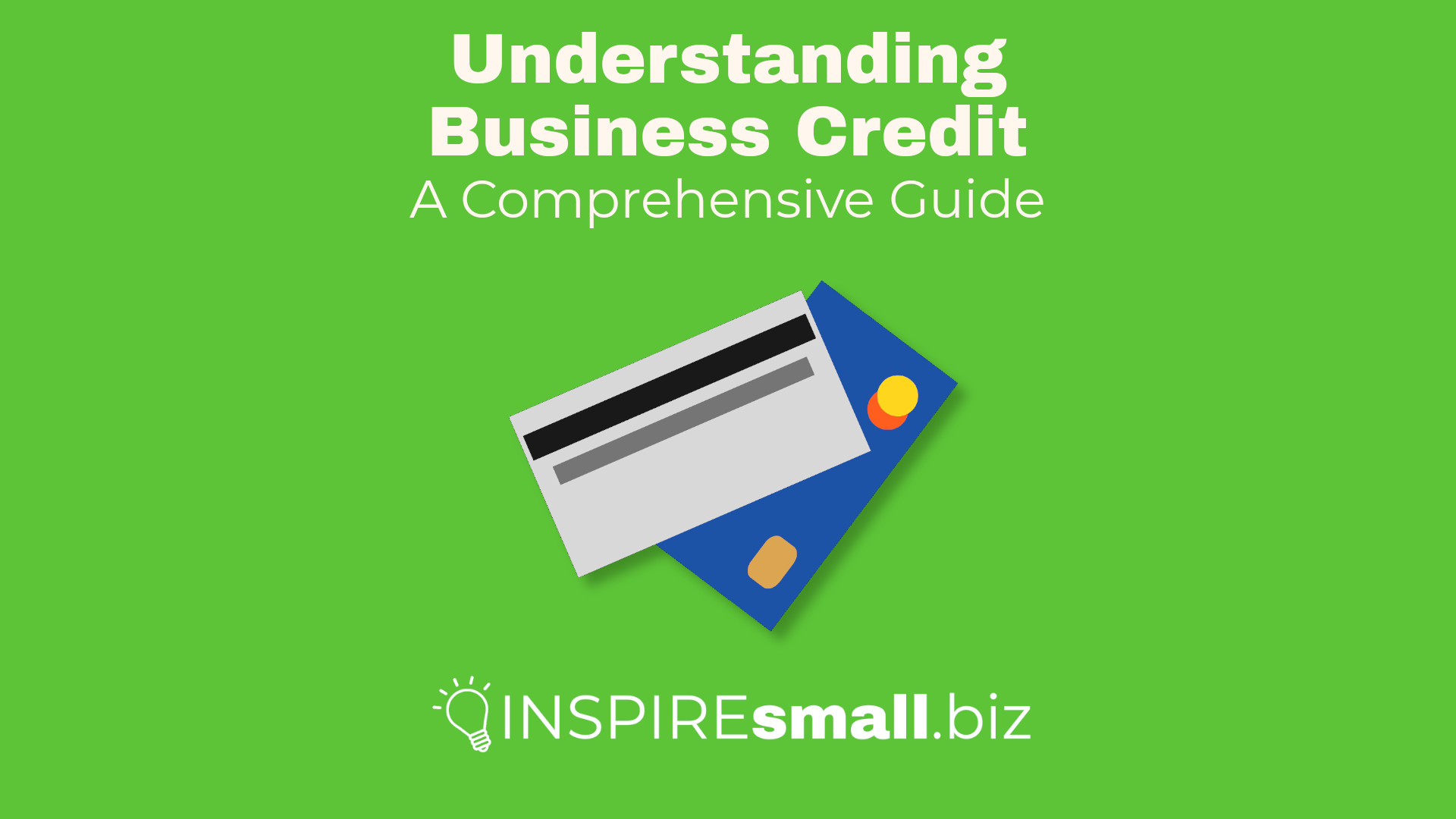Building business credit is a crucial aspect of establishing and growing a successful enterprise. Just as individuals rely on personal credit scores for financial opportunities, businesses need a solid credit profile to access capital, secure favorable terms with suppliers, and navigate financial challenges effectively.
In this guide, we’ll explore the importance of business credit, the steps involved in building it, and strategies for optimizing your credit profile.
What Is Business Credit?
Business credit is a financial metric that reflects a company’s creditworthiness and ability to manage debt obligations. Like personal credit scores, business credit scores provide lenders, suppliers, and other stakeholders with insights into a company’s financial health and reliability as a borrower.
Business vs. Personal Credit
Business credit and personal credit serve distinct purposes and offer unique benefits. Understanding the differences between the two can help individuals and businesses make informed decisions about their financing needs. Here are some key benefits of business credit compared to personal credit:
Separation of Personal and Business Finances
One of the primary benefits of business credit is the separation of personal and business finances. Establishing business credit allows businesses to access financing and credit lines without relying on personal assets or credit history. This separation protects personal assets in the event of business liabilities or financial challenges.
Building a Business Reputation
Business credit helps build a separate credit profile for the business entity, which can enhance its reputation and credibility in the eyes of lenders, suppliers, and other stakeholders. A strong business credit profile demonstrates financial responsibility and reliability, making it easier for businesses to access financing, negotiate favorable terms, and establish relationships with vendors and suppliers.
Access to Higher Credit Limits
Business credit often offers higher credit limits compared to personal credit. With a robust business credit profile, businesses can access larger lines of credit, loans, and financing options to support their growth and expansion initiatives. These higher credit limits provide businesses with greater flexibility and purchasing power to invest in equipment, inventory, marketing campaigns, and other business needs.
Limited Personal Liability
Establishing business credit helps limit personal liability for business debts and obligations. In the event of business bankruptcy or financial distress, creditors typically cannot pursue personal assets or credit history to satisfy business debts, provided that the business is structured as a separate legal entity, such as a corporation or limited liability company (LLC).
Benefits of Building Business Credit
Improved Cash Flow Management
Business credit can help improve cash flow management by providing access to short-term financing options, such as business credit cards, lines of credit, and invoice factoring. These financing tools allow businesses to cover operating expenses, bridge gaps in cash flow, and take advantage of growth opportunities without depleting cash reserves or relying on personal funds.
Tax Benefits and Deductions
Businesses may be eligible for tax benefits and deductions related to business credit expenses, such as interest payments on business loans, credit card fees, and other financing costs. These tax benefits can help businesses reduce their taxable income and lower their overall tax liability, providing additional savings and financial advantages.
Scalability and Growth Opportunities
Building a strong business credit profile opens doors to scalability and growth opportunities for businesses. With access to financing and credit, businesses can invest in new equipment, hire additional staff, expand operations, enter new markets, and pursue strategic initiatives that drive business growth and profitability. Business credit provides the financial resources needed to capitalize on opportunities and take the business to the next level.
Steps to Building Business Credit
Establish Your Business Entity
Before you can build business credit, you must establish a separate legal entity for your business, such as a corporation or limited liability company (LLC). This separation ensures that your personal and business finances remain distinct.
Incorporating your business or forming an LLC also provides legal protection for your personal assets and lends credibility to your enterprise. It also demonstrates a commitment to professionalism and stability, which can positively impact your creditworthiness.
Obtain an Employer Identification Number (EIN)
An Employer Identification Number (EIN) serves as the business equivalent of a Social Security number and is essential for tax purposes and establishing business credit. You can apply for an EIN through the IRS website.
Open a Business Bank Account
Open a business checking account in your company’s name to facilitate financial transactions and establish a banking relationship. Use this account exclusively for business-related expenses and income.
Establish Trade Lines with Suppliers
Building relationships with suppliers who report payment history to business credit bureaus can help establish trade lines, which are accounts with credit terms for purchasing goods or services. Timely payments on these accounts contribute to your business credit score.
Apply for a Business Credit Card
Securing a business credit card is an excellent way to start building credit for your company. Choose a card with features and benefits tailored to your business needs, and use it responsibly to establish a positive payment history.
Monitor Your Business Credit Report
Regularly monitor your business credit report from major credit bureaus, such as Dun & Bradstreet, Experian, and Equifax. Reviewing your report allows you to identify inaccuracies, detect potential fraud, and track your progress in building credit.
Strategies for Optimizing Business Credit
Pay Bills on Time
Timely payment of bills and obligations is crucial for maintaining a positive business credit profile. Late payments can negatively impact your credit score and erode trust with lenders and suppliers.
Keep Credit Utilization Low
Manage your business credit utilization ratio—the amount of credit you’re using compared to the total available credit. Aim to keep this ratio below 30% to demonstrate responsible credit management.
Diversify Your Credit Portfolio
Having a mix of credit types, such as credit cards, loans, and lines of credit, can positively influence your business credit score. Diversifying your credit portfolio demonstrates your ability to manage different types of debt responsibly.
Avoid Closing Old Accounts
Closing old accounts can shorten your credit history and potentially lower your credit score. Instead, keep older accounts open and use them occasionally to maintain a positive credit history.
Seek Professional Guidance
Consider enlisting the help of financial advisors, credit counselors, or business consultants with expertise in credit management. These professionals can provide personalized guidance and strategies tailored to your business needs.
Establish a Strong Financial Foundation
Building business credit is just one aspect of financial management. Ensure your business has a solid financial foundation, including robust cash flow management, adequate reserves, and a clear budgeting strategy.
Maintain Good Personal Credit
While business credit is separate from personal credit, lenders may consider your personal credit history when evaluating your business’s creditworthiness, especially for newer businesses with limited credit history.
Plan for Long-Term Growth
Building business credit is a long-term endeavor that requires patience, diligence, and strategic planning. Continuously assess your business’s financial health and adjust your credit-building strategies accordingly to support sustainable growth.
Conclusion
Building business credit is a vital component of managing a successful enterprise. By following the steps outlined in this guide and implementing strategies for optimizing your credit profile, you can position your business for greater financial opportunities, stronger vendor relationships, and long-term success. Remember that building business credit is a journey, and staying committed to responsible credit management practices is key to unlocking the full potential of your business. With the right approach and mindset, you can build a solid foundation of business credit that supports your company’s growth and prosperity for years to come.



